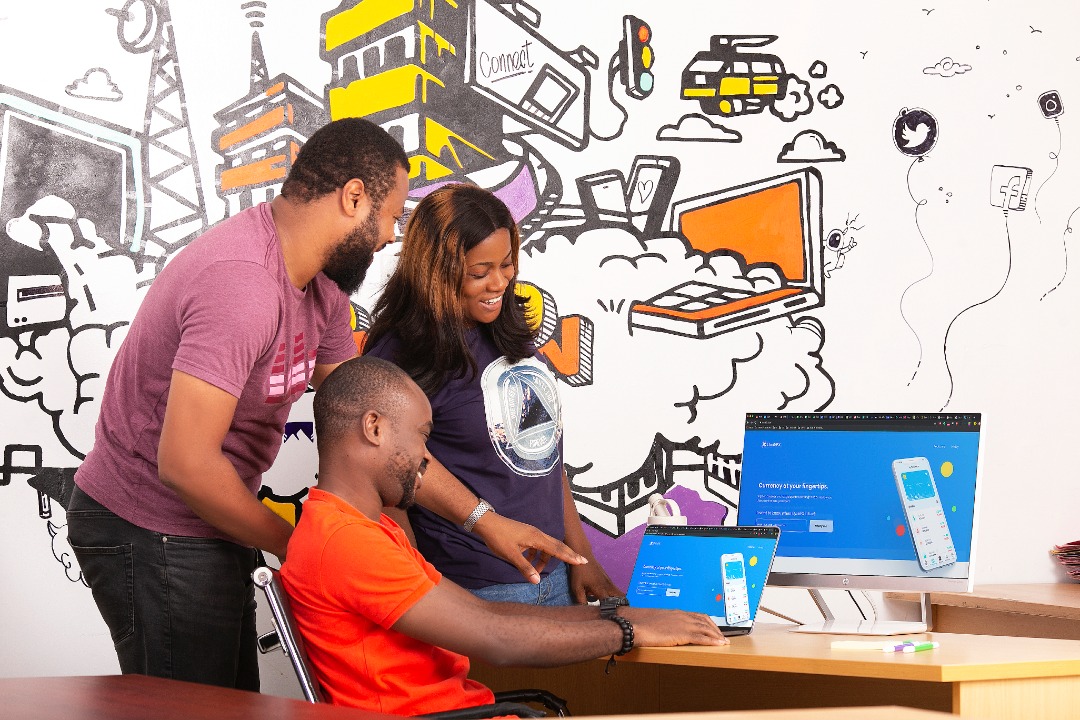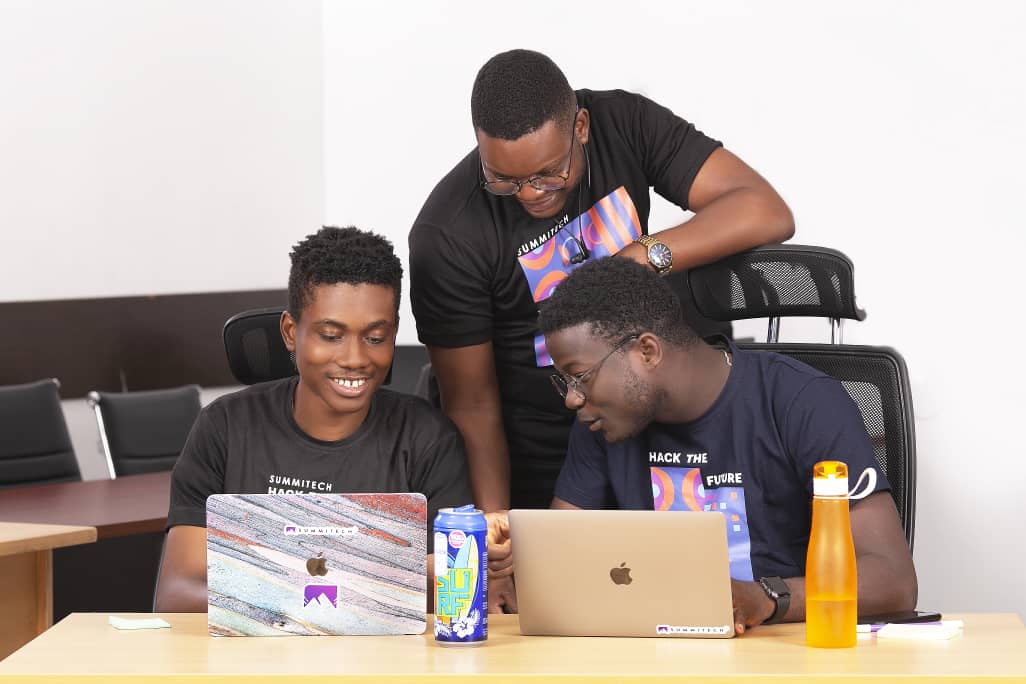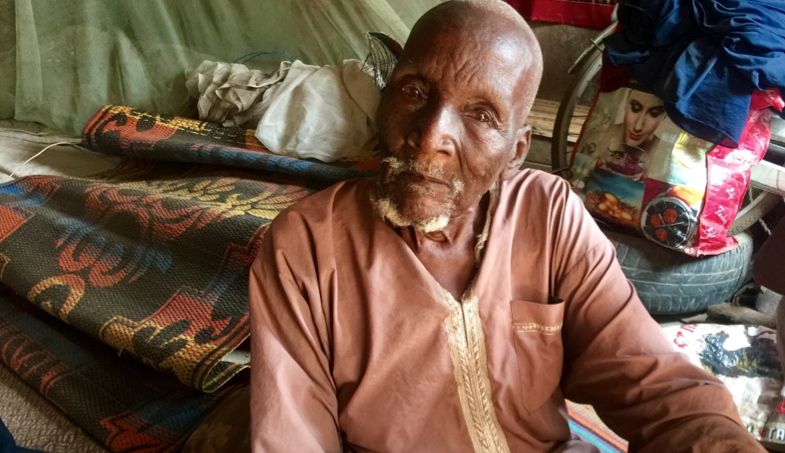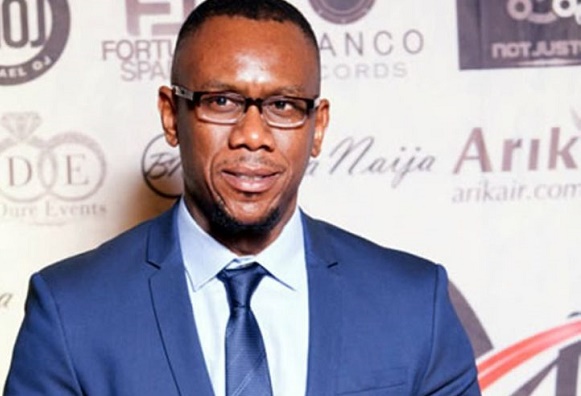For Adekunle Kunle-Hassan, Summitech Computing Limited is more than just a tech company. In many ways, it’s a life-changer, and one the chief executive officer has been building since it was founded in 2016. In this interview with TheCable’s WASILAT AZEEZ, Kunle-Hassan talks Summitech — its spontaneous evolution, hurdles faced, making a positive difference in people’s lives and a vision for the future.
TheCable: We know Summitech is an information technology (IT) solutions company. But can you tell us what your company does?
Kunle-Hassan: Summitech is basically three companies in one. It’s a digital agency, an IT infrastructure and support company, and we’re also a training institution. We train people on software testing so they can have a leg into the tech industry as it were. So, those are the three main things we do as a company.
TheCable: What inspired you to start your own company?
Advertisement
Kunle-Hassan: I’ve been in the tech space for about 11 years now. In the earlier days, almost everything was a greenfield in terms of technology. Everything was untouched. I noticed that when it came to building quality software, a lot of companies were at a loss. I saw an opportunity to help companies that want to build technology-driven businesses, but didn’t have the knowledge or the technical team to do so in an agile way.
I have been with companies that didn’t really have a process, others that use waterfall methodology and I’ve also been in a fully agile team like the one at Konga, back in 2014 to 2016. I was inspired to bring the spirits, the technical expertise and level of execution I saw there to other businesses and startups that wanted to build world-class software and technical solutions.
TheCable: How did you secure funding for your venture?
Advertisement
Kunle-Hassan: Actually, the initial funding came from years of savings and a lot of support from family and friends. I actually talked to quite a few people and colleagues. For example, the first couple of Summitech employees, none of us were paid. I reached out to them and I said: “Hey, I have this idea. What do you guys think? Let’s do it together. Let’s be partners.” And that’s how we started. So, everything came from eight years of savings, and also some support from family and friends.
TheCable: Using eight years of personal savings to fund a startup is a brave move. Were you scared?
Kunle-Hassan: I was scared. That’s an understatement. I was actually very scared. But, I guess the difference was that after I left Konga, I went to work at some other companies. One of them was eTranzact. I just couldn’t shake the feeling that I wanted to be doing more. I wanted to be helping a bunch of companies to experience what I had experienced before. I just jumped in. Literally, I remember that I called my parents, told them what I wanted to do, and they supported me. Then, I started reaching out to colleagues and we just kind of jumped in feet first.

Advertisement
TheCable: Startups have a high risk of failure, especially within the first five years. How have you managed your business growth?
Kunle-Hassan: It’s been very interesting because we’ve learned a lot over the last five years. It’s always been a new challenge. We get most of our work from word of mouth and referrals. Every client we deal with is unique and comes with their own challenges as well. A lot of people misjudge the complexity of the work we do, and it is always important to get on the same page very early on. The business environment is very dynamic. It’s always changing and you never know what’s going to happen. We just have to adjust and adapt quickly. However, there are some things you just can’t plan for, like a global pandemic, but what we have evolved as a company during this time.
TheCable: How has the COVID-19 pandemic impacted your business operations?
Advertisement
Kunle-Hassan: COVID has been very remarkable. In some cases, it’s been good while it’s been bad in other cases. Many of our clients’ businesses were grounded by the pandemic so the immediate effect was that we started losing revenue. Conversely, it ended up being a boom because the digital economy suddenly exploded. Our services became in more demand and we were able to expand our services beyond Nigeria. We’ve already been working in multiple countries but we got more jobs from the UK which really helped us survive during that particular season. We thought we were going to lose a lot of money, but we ended up making more money than we were making ever before.
TheCable: What are the challenges you’ve encountered as a startup in Nigeria?
Advertisement
Kunle-Hassan: Obviously, the unique cultural challenges of working in Nigeria. Like I said earlier, the environment is very dynamic and things can change at anytime. You have to understand your clients. You could say something to a person and they just regard it as you are providing them with the information they need. Another client could consider the same thing as an insult. You have to be very, very careful with those things.
I think it’s also important to understand which jobs are for you. No matter how much money or prestige is attached to it, it’s actually not every job that is right for you. One of the hardest things we had to learn was basically choosing one when to say no to a job that seems amazing, but just looking at your team, the client and the fits, you tend to understand that you have to decline.
Advertisement
It’s good to make mistakes as quickly as possible, learn from them and decide what your competencies are. We have definitely made lots of mistakes. There was a time when we tried to go into something that’s called body shopping. Basically, you get paid for outsourcing your developers to organisations where they work on specific projects. We thought that it was going to be a good thing but we found that people were more interested in giving direct job offers to our developers. We were lucky that they told us what was happening.

Advertisement
TheCable: You started your company five years ago, would you say it has become a success?
Kunle-Hassan: Well, I’m not sure you ever feel that way. I think you always feel like there’s more to do. We had a vision when we established Summitech. As we achieved that vision, we realised there were more things we wanted to do. We just weren’t complacent to stay where we were. Initially, we weren’t always a training institution. We decided to go that way because we saw the value of training people to achieve their goals. We started with three staff members and that number has increased to just under 30 employees. It’s just been an ever-expanding scope for our vision. While we have had some successes, we still see that there’s so much work to do.
TheCable: The company is currently based in Nigeria. Do you plan to expand to other countries?
Kunle-Hassan: Summitech is already in other countries. We are registered in the UK and the US.
TheCable: If you didn’t start the company, what would you be doing now?
Kunle-Hassan: If I didn’t start Summitech, I imagined I’d still be a product manager or software product manager, probably outside of the country. This is because the main thing that I just really wanted to do with my career, even now, is just build high-quality software with great engineering teams. I love building amazing products.
TheCable: Apart from software development, what other things are you passionate about?
Kunle-Hassan: I have lots of passions. Owning a startup does not mean that I don’t pursue them. I still do things in my own time. I play the guitar and I also have a podcast. Anything that interests me, I just jump into it and I try it out.

TheCable: What is your vision for the company?
Kunle-Hassan: We went from just wanting to deliver quality software to also seeking to have a direct impact on people. Software isn’t just technically great, it has a meaningful impact. So, that theme of impact is now the new vision for the company where we want to impact people’s lives, whether it’s through products, or quality assurance training that helps people launch their careers and make a difference in their lives.
TheCable: How does Summitech differentiate itself from competitors?
Kunle-Hassan: At Summitech, we have skilled personnel with many years of experience on the job, and we work with modern technologies. What really sets us apart is that we solve our clients’ problems as if they’re our own problems. We’re invested in the success of their organisations and our capabilities in these different areas enable us to provide more of a holistic business solution that ranges from software to hardware installation and support, as well as training of their staff. So, we basically provide more value per transaction.
TheCable: Summitest is your software testing training programme. What would you tell people if they were curious about it?
Kunle-Hassan: We are accredited by the ISTQB, that is, the International Software Testing Qualifications Board. Throughout the year, we have sessions that used to be in-person but we do webinars now. The idea is that after you go through this training, you have all the skills to start a career as a software tester, you should be employable. What we do for the top trainees in the class is that we also give them three to six-month internships so they can also show that they have work experience. Over the years, we found out that 60-80 percent of the trainees tend to get jobs after each of the sessions.

TheCable: Why did Summitech decide to create Indigo, a hospital management software?
Kunle-Hassan: In our early days, we actually pitched our hospital management software to a client in the healthcare industry. They actually were not our client yet, because as I said, we just jumped in headfirst. Rather than people calling us to build things for them, we had to pitch ourselves to companies. Having talked to some of the people inside the organisation, we knew they had gone through many of the off-the-shelf hospital management software and it didn’t have anything that quite suited their needs. So, we learned their business and we tried to solve as many problems as we could, using technology.
We found so much opportunity in this space. While the hospital management software is the first step, we can still see many applications for hospitals, patients and other players in the healthcare industry. This is because of the close relationship we’ve maintained with these clients. Just like the business environment is dynamic for us in the tech industry, it is the same for the health industry. We are open to the new challenges and opportunities that show up every single day.
TheCable: How can Indigo revolutionise the way hospitals are run in Nigeria?
Indigo provides you with the data that you need, exactly when you need it. It can streamline both your clinical and operational tasks and makes keeping in touch with your patients easier. It eliminates a lot of paper by being an electronic medical record. It can help you manage both HMO and sponsored patients. It has features such as appointment booking, which is linked to the mobile app, so patients can book appointments wherever they are, and even have telemedicine sessions right from the app. In short, it makes running a hospital easier by keeping track of all your hospital processes such as appointments, inventory and payments. However, where I really see it going is helping hospitals to see more patients by giving the doctors’ information they need to make accurate diagnosis, keep track of patients while they’re in the hospital and reduce the friction as patients move through the hospital. This is because an unhappy patient is going to slow the entire clinic down. As Indigo matures, we aim to add more features that will make hospital visits seamless for both the patient and the doctor.
TheCable: What other exciting product releases should we expect from Summitech?
Kunle-Hassan: This year, we’re releasing a major update to our hospital management software. It is going to be the best it’s ever been. We are launching a product called QwikFX. As the name implies, it has to do with getting foreign exchange (FX) quickly.
Add a comment





